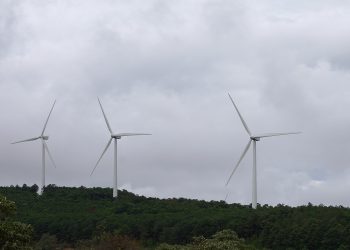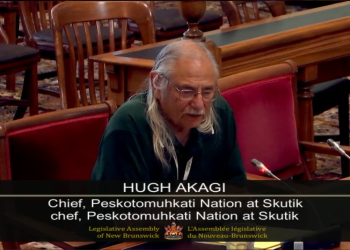2023 was the warmest year on record, and 2024 has been even warmer so far. Most humans know that the climate crisis exists, and the majority of Canadians are worried about what that means for the state of our world in the future and in the present.
Yet Canada, despite being among the major international contributors to climate change, is not doing enough to protect people and the planet from environmental catastrophe. I’m concerned for my future, for the future of my friends and family, and for the future of other beings and the more-than-human world that suffer from our actions.
Many young people experience the feeling of eco-anxiety, or anxiety about the climate crisis and the state of the world. Because of this, many young people are also questioning the effectiveness of capitalism, the dominant economic system in Western society characterized by endless growth and a reliance on fossil fuels. Many people in power are not worried enough about this. We urgently need to make more meaningful steps towards a just transition to alternative energy sources.
One dominant conversation in the energy transition discourse surrounds nuclear energy. The New Brunswick government has proposed to develop small modular reactors (SMRs) to produce nuclear energy and decarbonize the economy. But there are many criticisms of these proposed SMRs, including the toxic radioactive waste that they would produce if they are built.
The nuclear industry is proposing to construct a deep geological repository to store all nuclear fuel waste. However, the effectiveness of such a structure in keeping radioactive materials from escaping into the environment is unproven. Continuing colonial settler practices, the Nuclear Waste Management Organization has proposed to build this repository on traditional Indigenous homelands in Ontario, either in Wabigoon Lake Ojibway Nation-Ignace or in Saugeen Ojibway Nation-South Bruce areas.
SMRs, just like traditional nuclear reactors, will generate materials that could be used for nuclear weapons. Two companies, Moltex and ARC, have been funded by both the New Brunswick and federal governments to develop their SMR designs. Of these, Moltex requires the use of plutonium as fuel and this raises concerns about nuclear proliferation. Despite the risks and concerns about these plans, the government has been promoting SMRs as a so-called “clean” energy and a “carbon-free power” source.
The idea of transitioning to a nuclear-based economy makes me even more concerned for the future. Are we really going to trade one problem for another? Are we really going to market SMRs as a climate solution and clean source of energy when they will leave a legacy of radioactive waste for hundreds of thousands of years to come?
It is imperative that we heal our relationship with the natural world by reducing our harmful consumption and transitioning to renewable energy rather than nuclear energy that will leave a legacy of toxic waste and nuclear proliferation. We must ultimately transform our societal values around energy and consumption in general. We should transition away from fossil fuels and our consumerist economy and towards more just renewable energy sources.
In a conversation with Wolastoqey Grand Chief Ron Tremblay on the importance of a just energy transition, he said: “All the Wabanaki peoples – our very first agreement and treaty was with the Earth, to live in that kind and respectful way, and as human beings we’ve all lost that way and that vision.”
The Earth has sustained and nurtured us time and again, and we have a responsibility to give back and be reciprocal. We must act now to leave a positive legacy for the future; for coming generations; and for the people, other beings, and the planet alive today – and we must do it in the most caring and responsible ways that we can.
Erin Hurley is a fourth year student majoring in Environment and Society at St. Thomas University.


![Radioactivity and nuclear waste under scrutiny in Peskotomuhkati homeland [video]](https://nbmediacoop.org/wp-content/uploads/2025/10/EdwardsAkagiOct52025-1-350x250.jpg)



![‘Continuum of genocide’: Pentagon funding of Sisson mine provokes renewed opposition from Wolastoq Elders [video]](https://nbmediacoop.org/wp-content/uploads/2025/07/SissonMine-2-120x86.jpg)
![Radioactivity and nuclear waste under scrutiny in Peskotomuhkati homeland [video]](https://nbmediacoop.org/wp-content/uploads/2025/10/EdwardsAkagiOct52025-1-120x86.jpg)


